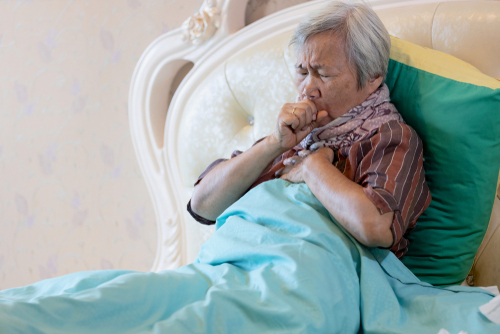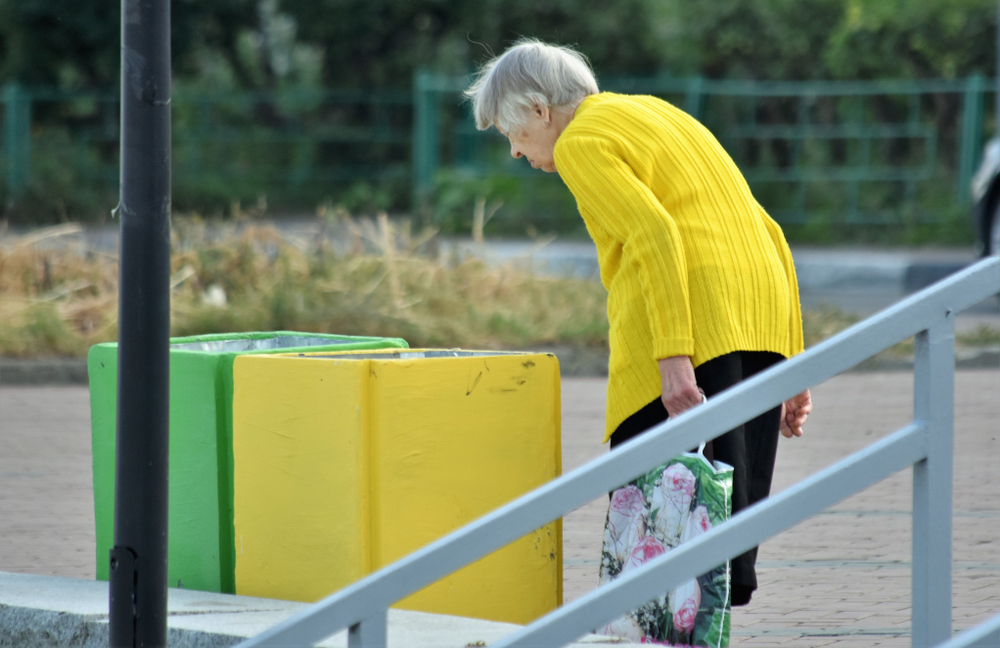Bronchitis in Elderly Adults: Chronic Cough
Category:

Bronchitis is an inflammation of the bronchial tubes, which carries air to and from your lungs. It often causes a wet cough, shortness of breath, wheezing, fatigue, and a mild fever. Bronchitis can either be acute or chronic. Acute bronchitis in the elderly generally clears up in about ten days. Chronic bronchitis in elderly adults is more serious since an elderly person may have a weakened immune system or underlying health issues, along with decades of wear and tear on the lungs.
Symptoms of a Chest Infection in the Elderly
Bronchitis is a type of chest infection, so knowing the symptoms of a chest infection can help you know when you or your elderly loved one needs to see a doctor.
The main symptoms of a chest infection generally include:
-
A persistent cough
-
Coughing up yellow or green phlegm (thick mucus) or coughing up blood
-
Feeling breathless, or rapid and shallow breathing
-
Wheezing
-
Fever
-
Rapid heartbeat
-
Feeling confused or disoriented
If your elderly loved one is coughing up phlegm, it is important to speak with a doctor sooner rather than later. This is especially important for elderly loved ones with dementia. Phlegm in elderly persons with dementia is concerning because the ability to swallow deteriorates with late-stage dementia. A buildup of phlegm and mucus will only make it even more difficult to both swallow and breathe.
How to Treat Chest Congestion in the Elderly
Though it is difficult to completely cure, there are treatments for chronic bronchitis in the elderly.
A simple cough in an elderly person, like one caused by cold or acute bronchitis, can generally be managed at home with these suggestions:
-
Get plenty of rest
-
Stay hydrated with warm liquids, including liquid foods if possible
-
Use an over-the-counter cough suppressant
-
Run a humidifier
-
Take over-the-counter pain relievers to reduce aches and prevent fever
Treatments for chronic elderly bronchitis is generally more intense and can include:
-
Steroid inhalers
-
Oral medication that opens airways and prevents mucus buildup
-
Supplemental oxygen from portable oxygen containers
-
Humidifier use
-
Pulmonary rehabilitation
Download Our Heart Health Guide
Luckily, you can take steps to prevent chronic coughing in the elderly. Minimizing exposure to cigarettes is one of the most important steps to take – this includes secondhand smoke. The flu is another common cause of chronic cough, so get that yearly flu vaccine. You can also wear a face mask in dusty environments and practice good hand hygiene – two things we are familiar with now thanks to Covid.
While bronchitis in elderly adults is not necessarily deadly, it can be dangerous and should be taken seriously. Try not to blow off symptoms thinking you just had a cold – pay attention to those nagging coughs, and don’t be afraid to get them checked by your doctor.
Subscribe
Date: 2022-11-17
Category:


